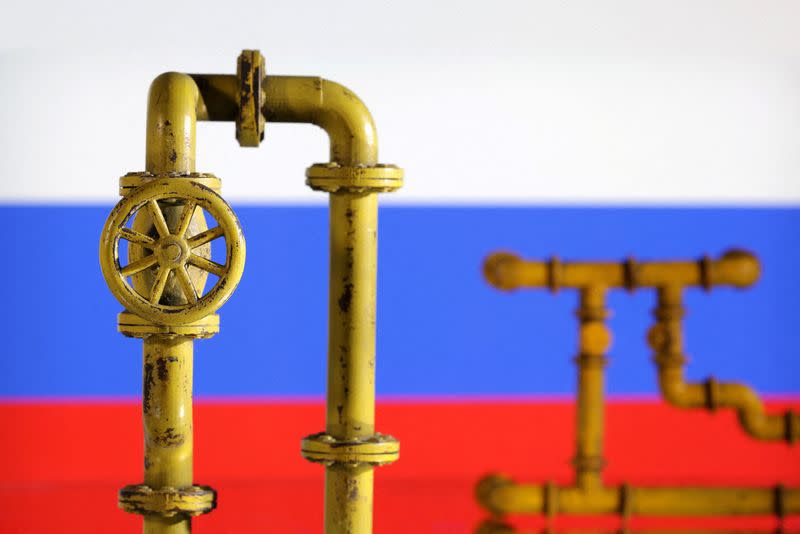Kremlin: no plans to raise crude oil supply to offset fuel export ban

MOSCOW (Reuters) -Russia has not discussed with the OPEC+ group of leading oil producers a possible crude oil supply increase to compensate for Russia's fuel exports ban, the Kremlin said on Thursday.
"There are no discussions about this, we adhere to all the agreements within OPEC+ and our partners do the same," Kremlin spokesman Dmitry Peskov said.
In line with action taken by OPEC+, as the Organization of the Petroleum Exporting Countries and allies led by Russia is known, Moscow has promised to cut its oil output by 500,000 barrels per day, or some 5% of its output.
In addition, Russia pledged to reduce its crude oil exports by 300,000 barrels per day, from the average export level in May and June, until the year-end.
Russia meanwhile has grappled with shortages of gasoline and diesel in recent months.
Traders said the fuel market in Russia, one of the world's biggest oil producers, has been hit by factors including maintenance at oil refineries, bottlenecks on railways and the weakness of the rouble, which incentivises fuel exports.
President Vladimir Putin and government officials discussed on Wednesday measures to tackle the fuel crisis. He told the government on Wednesday to "work closely with the companies" to stabilise the fuel market.
Asked, if any administrative measures could be applied to the Russian producers over the domestic fuel market shortages, Peskov said that was unnecessary, but that "work" with the companies will be carried out.
Separately, Russian Energy Minister Nikolai Shulginov said earlier on Thursday that the ban on fuel exports will remain in place until the domestic market stabilises.
Russian domestic fuel prices sharply declined last week following the introduction of the ban. However, they have crept higher this week, after the government eased its ban on cross-border supplies, including by lifting restrictions on exports of low-grade and marine fuels.
On Thursday, wholesale gasoline Ai-92 grade prices edged up 0.7% to 58,229 roubles ($601.15) per tonne, according to the data from the St. Petersburg International Mercantile Exchange (SPIMEX).
Diesel prices rose 0.5% to 63,034 roubles per tonne.
($1 = 96.8630 roubles)
(Reporting by Dmitry Antonov; writing by Vladimir Soldatkin; editing by Guy Faulconbridge and Barbara Lewis)

 Yahoo Finance
Yahoo Finance 